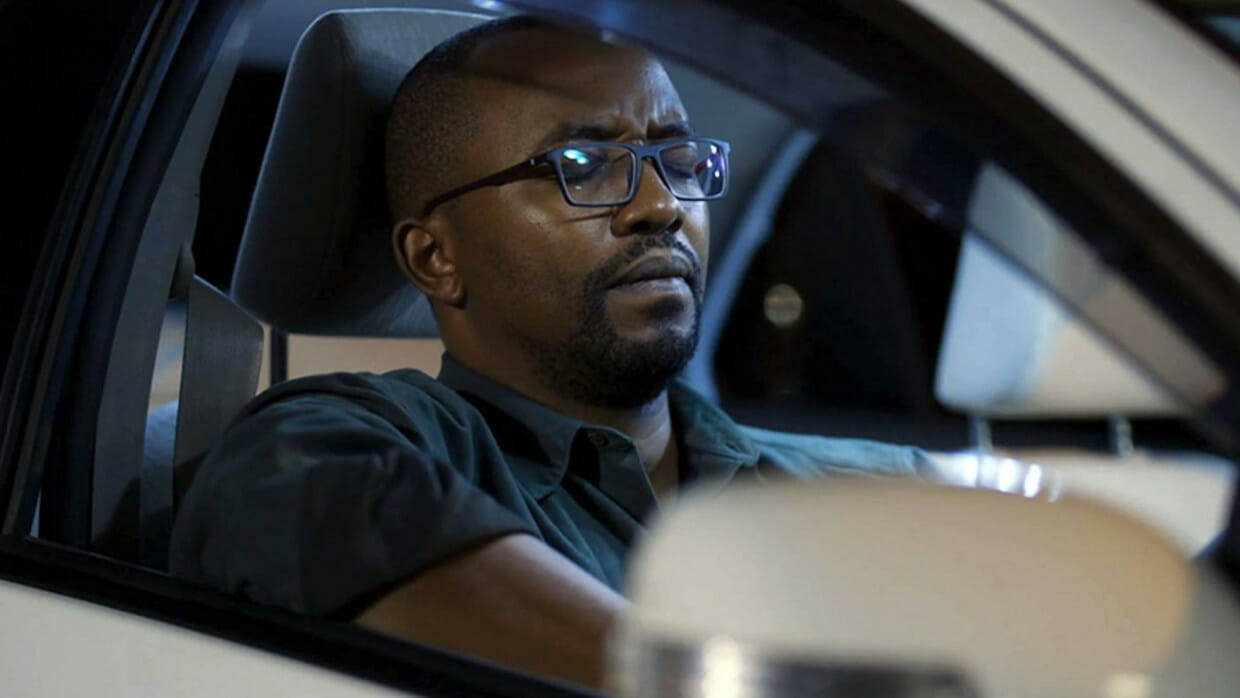
16 November 2020
How Lucy Mwangi turned an everyday hustle story into a relatable Kenyan hit with Njoro wa Uba
She is the woman behind some of Kenya’s most beloved comedies. Like Auntie Boss, which recently came to an end after an eight-year run, and its spin-off Varshita, a two-time Kalasha Awards nominee for Best TV Comedy. Or Njoro wa Uba, which became an instant hit, and has been praised by fans for being the most realistic portrayal of what taxi drivers in Nairobi go through.
But for Lucy Mwangi, perhaps, her biggest achievement is the ease with which her shows use humour to highlight issues that need to be taken seriously – whether it’s how househelps control everything in their employers’ households in Auntie Boss. Or the challenges experienced in interracial marriages between Africans and Indians in Varshita. Or the everyday struggles and frustrations of the common mwananchi in Njoro wa Uba, her most recent project, which is available to stream on Showmax and airs on Maisha Magic East.
Njoro wa Uba follows Njoro (Joe Kinyua, The Whistle Blower), a man who’s forced to become a taxi driver to make ends meet after losing a lucrative job due to allegations of fraud.
“Njoro’s life is a reflection of our struggles. We struggle with love, finances, injustice, friendships, insecurities, basically everything. But even at our lowest, as Kenyans we have a way of finding humour in most situations. It is important to have our audience relate with Njoro’s experiences, but also to find a light moment where they could also find some humour in their own situations,” Lucy says.

The inspiration for Njoro wa Uba came from her conversations with taxi drivers, whom she describes as “flies on the wall.” She says, “A taxi is a deceptively safe space where, for most, the masks of perfection fall off. Couples fight, trysts are scheduled, secrets are shared, confessions are made, all because for some reason, taxi drivers create an illusion of anonymity. Inside the taxi, most people let their guard down, allowing us a glimpse into those areas of their lives that they otherwise keep hidden.”
Njoro wa Uba is full of these moments with strangers sharing parts of their lives – from nuns who live double lives, to tenderpreneurs who con unsuspecting citizens, to YouTube couples living fake lives just for the fame. But there are also deeper moments that capture the hopelessness of the passengers and the stark realities of living in a city as busy, and sometimes, as unforgiving as Nairobi. For Lucy, stories like these couldn’t be more vital.
“Nairobi is a lively city, but underneath its good attributes, lie political incorrectness, betrayal and corruption, and most importantly for us, a system of injustice and incompetence that permeates our everyday lives,” Lucy says. “Njoro is our everyday guy who’s made some mistakes, but he has paid for them and is now just trying to survive by earning an honest wage. But the system is set up to work against him. This is not just Njoro’s story, it’s our story as Kenyans.”

Even more important for Lucy is the fact that Njoro wa Uba has started a debate that in its own small way, is making an impact on the lives of taxi drivers in Kenya. “I have seen people on social media say that they started relating and treating their taxi drivers better after watching the show and getting to understand the challenges that come with the job. Njoro wa Uba has humanised taxi drivers, and reading such, makes all the hard work that goes into putting the show together worthwhile,” she says.
There are times she’s had random conversations with drivers who reference episodes of Njoro wa Uba, not knowing that she’s the producer of the show. Recently when they were filming in Mombasa, they were mobbed by appreciative fans and tuk tuk drivers, seeking to give Njoro advice on how to handle his love life on the show.
More like Njoro wa Uba
At the 2019 Kalasha Awards, Njoro wa Uba was nominated for Best TV Comedy and Best Lead Actor for its star Joe Kinyua. Lucy praises him for his portrayal of Njoro, saying Kinyua is one of the best actors to work with. “The role of Njoro requires him to be on set every day from 7am-7pm on all production days since he appears in all scenes, and in all the episodes. It is a very demanding role mentally and physically. That he has to manoeuvre the car in and out of traffic, give his best performance while at it and still remember his lines, few can pull off that kind of pressure with the skill and excellence that Joe has been able to.”
And while the comedy series, which is now in its fifth season, is deserving of another Kalasha nomination (and a win) this year, for Lucy, their biggest validation comes from their fans.
“We are doing an amazing job based on the feedback we are getting from fans of the show – that we are able to connect and make our audiences feel something, that is all that matters,” she says.
Catch Njoro wa Uba S1-5 online with Showmax, plus new episodes weekly.
Untied, coming to Showmax
The Real Housewives of Durban S5, now streaming
More Mzansi gold

Where to see the cast of Shaka iLembe S1-2 on Showmax
From Nomzamo Mbatha as Queen Nandi to Lemogang Tsipa as King Shaka Zulu and Thembinkosi Mthembu as King Dingiswayo, see the cast of Shaka iLembe in some of their other acclaimed roles on Showmax.

The F-Show (2025)
The F-Show features a strong roster led by one of South Africa’s favourite comedians skewering the daily chaos that comes with being South African.

Showmax Gen Z stars speak out for Youth Day 2025
The young stars of Youngins, Soft Life, and Adulting share what Youth Day means to them and how their roles are influencing their generation. See them all on Showmax.

Youth Day 2025: How 8 South African stars got their start
From Thembinkosi Mthembu to Thuso Mbedu and Lemogang Tsipa, these South African stars have journeyed from humble beginnings to taking our screens and the world by storm.




